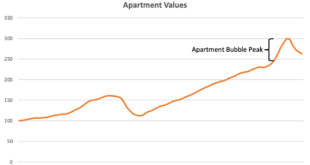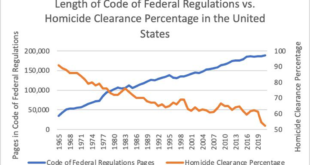[This article was first published in the New York Sun.]“Who will guard these guardians?” That poser of Juvenal, satirist of Rome, is an immortal question — nowhere more pertinent, though, than in deciding who should oversee the Federal Reserve. In the Fed, we have supposed guardians of stable prices who have decided by themselves to create perpetual inflation.Just to mark the point: Guardians of the currency have decided by themselves to depreciate it forever....
Read More »Smedley Butler Explains the Latest Excuse for American Intervention in Ukraine
Senior Fellow Alex Pollock drew my attention to an important quotation by Smedley Butler: 1935 speech and later a book by Major General Smedley D. Butler (USMC), includes “… A racket is best described, I believe, something that is not what it seems to the majority of people. Only a small “inside” group knows what it is about. It is conducted for the benefit of the very few, at the expense of the very many. Out of war a few people make large fortunes. … If we put...
Read More »Apartment Bridge Loans Are Collapsing
Stoked by ultra-loose monetary policy from the Federal Reserve, capital markets have been in a persistent bubble for several years. Printing trillions of new dollars and maintaining a zero-interest rate policy (“ZIRP”) was marketed by politicians and bureaucrats as supportive of the “main street economy,” but those trillions were directed primarily towards speculation in capital markets. Nowhere was this malinvestment more apparent than in apartment investing. After...
Read More »Be on the Lookout for These Lies in Biden’s State of the Union Address
On Thursday evening, President Joe Biden is set to give his third State of the Union address. The political press has been buzzing with speculation over what the president will say. That speculation, however, is focused more on how Biden will perform, and which issues he will prioritize. Much of the speech is expected to be familiar.The story Biden will tell about what he has done as president and where the country finds itself as a result will be the same dishonest...
Read More »Dissecting Lincoln
Thomas DiLorenzo, the president of the Mises Institute, has already reviewed Paul C. Graham’s Nonsense on Stilts: The Gettysburg Address and Lincoln’s Imaginary Nation (Shotwell Publishing, 2024) in characteristically excellent fashion, but the book is so insightful that some further comments are warranted. It is clear that Graham has a philosophical turn of mind and is a master of linguistic analysis.His skill is amply on display in his dissection of Abraham...
Read More »Reimagining Public Safety – The Case for Privatizing Security
Since the conclusion of World War II, each biennial session of Congress has ushered in a staggering 4-6 million words of additional legislation. However, amidst this flood of legal text, the State's focus on expanding regulations and enforcing compliance has overshadowed its fundamental obligation: provision of security—the cornerstone of what progressives call the social contract.This neglect is starkly evident in the steady decline of the national homicide...
Read More »States Rights and Anti-Interventionism is Rising
Super Tuesday saw Donald Trump sweep all possible state delegates except for the state of Vermont. However, hovering just below the surface were a series of propositions that were voted on by the Texas Republican Party. Various propositions touched on topics of gold as legal tender, border security, and school choice, but the most interesting was Proposition 6. Proposition 6 reads as follows: “The Texas Legislature should prohibit the deployment of the Texas National...
Read More »Video: Alex Pollock Chairs a Panel Discussion on “Better Money: Gold, Fiat, Or Bitcoin?”
Video: Mises Institute Senior Fellow Alex Pollock moderates a panel discussion on Lawrence White's new book Better Money: Gold, Fiat, Or Bitcoin?. The event is sponsored by the Federalist Society. White delves into the timely debate surrounding alternative currencies amidst the backdrop of constant inflation in the fiat currency world. Better Money explains and analyzes gold, fiat dollars, and Bitcoin standards to evaluate their relative merits and...
Read More »Getting the Great Depression (Almost) Right — And Totally Wrong
There are others, besides the Austrians, who acknowledge the crucial role of monetary policy and even blame the Federal Reserve for the Great Depression. Some scholars, which we can greatly appreciate, even go so far as to rightly criticize Franklin D. Roosevelt’s New Deal policies for prolonging the Great Depression: Jim Powell’s book FDR’s Folly, Burton Folsom’s book New Deal or Raw Deal?, and the scholarly work of University of California, Los Angeles economists...
Read More »Covid Showed Us Who Really Rules America
This month marks the fourth anniversary of one of the most disastrous assaults on human rights in American history. It was on March 16, 2020 that the President Trump issued "guidelines" for "15 days to slow the spread" which stated that "Governors of states with evidence of community transmission should close schools in affected and surrounding areas." The administration instructed all members of the public to "listen to and follow the directions of your state and...
Read More » Swiss Economicblogs.org
Swiss Economicblogs.org


